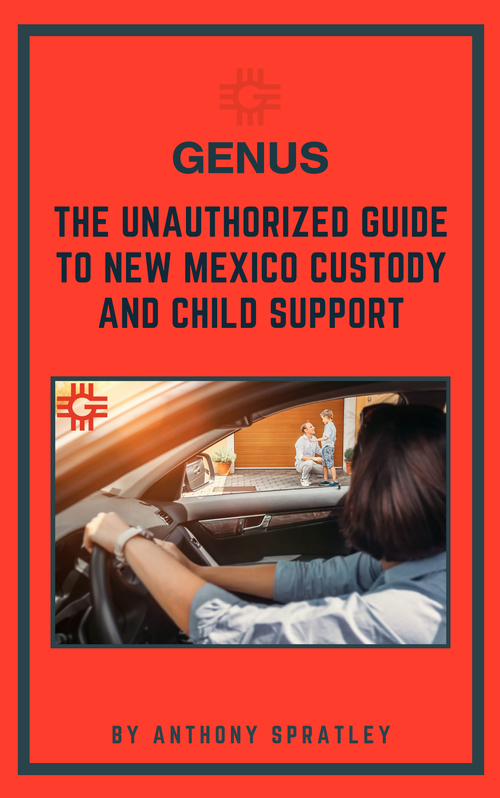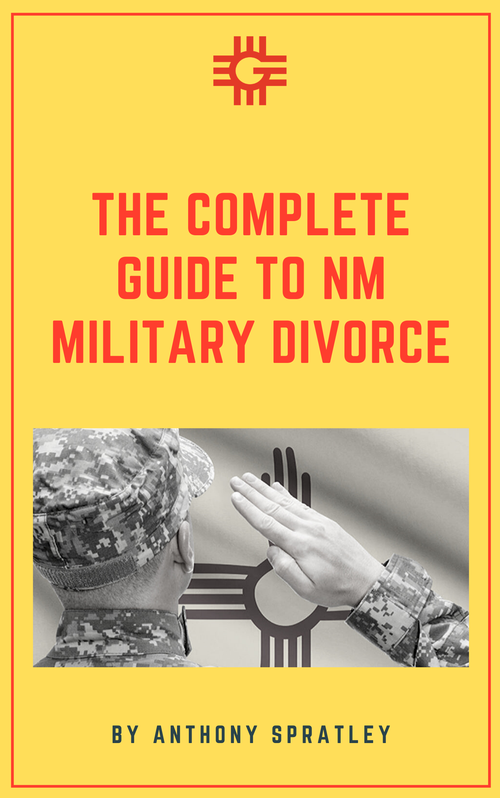Child Custody in New Mexico
In New Mexico, both parents of a minor child have parental and custody rights and responsibilities. In the event of a divorce, or if the parents were never married in the first place, custody needs to be formally established. This is a normal part of every divorce that involves children, however, it is important for you and your family to establish custody if you are not married to your child’s other parent. Not having a custody order can lead to many issues further down the line, and can even limit your options if that parent chooses to take the child or act unilaterally.
Usually, establishing custody involves creating a parenting plan, timesharing agreement, and child support if necessary. Other important things can also be governed by the custody agreement, including the children's school, religion, extracurricular activities, and cost-sharing among other things. While parents of minor children can come to an agreement among themselves about all of these things, child custody is usually one of the most contentious parts of any divorce. In the likely event that you and your soon-to-be-ex do not agree on all aspects of child custody, the court will facilitate negotiations and determine the terms of the custody agreement.
The Article discusses all aspects of New Mexico Custody and what parents need to know.
How Is Custody Determined in New Mexico?
In New Mexico, family law courts determine custody and timesharing based on the best interests of the children. Generally, New Mexico courts prefer that both parents share joint legal custody of their children, meaning they share the same amount of responsibility when it comes to making decisions about the children’s education, healthcare, and other aspects of their lives. There is also a preference for joint physical custody, which means that they prefer both parents to have equal time with the children. However, the facts of every case are different and there can be reasons for one parent to have primary physical or legal custody.
When determining the child custody arrangement, the Judge will consider things like who actually deals with and meets the daily needs of the children. They will look at things like who gets them ready and takes them to school, after-school activities, or helps with homework. A child’s age can also play a determining factor as the court will not want a very young child moving all the time or being away from their primary caregiver.
Typically, the New Mexico judges will weigh the following factors in child custody cases:
- Which parent has been the primary caregiver?
- Any history of alcohol, drug, or physical abuse?
- The age of the child
- The child’s preferences (if of suitable age)
- The present relationship between the child and each parent
- The structure of the extended family
- The parent's ability to cooperate
- The work schedules of parents
Basically, if you are the parent that meets your child's daily needs, you have a good case for primary custody. If you need help with a custody case, contact Genus Law to see how our New Mexico custody attorneys can help you.
Legal vs Physical Custody In New Mexico
Legal Custody in New Mexico refers to the parent that has the authority and responsibility to make significant decisions for the child in the areas of residence, medical and dental treatment, education or health care, religion, recreation, and more. It does not have an impact on how much time the child spends with that parent. Physical Custody, on the other hand, has nothing to do with legal custody and refers to the timesharing split. The child can spend more time with one parent (called the custodial parent) while both parents still have equal rights and responsibilities and vice versa.
Joint Custody in New Mexico
Usually, Joint Custody involves both legal and physical custody of their children, however, it is very common for one parent to be the primary custodian in one area. Joint custody is a term used in New Mexico in reference to both parents having both legal and physical custody of their children. This is because maintaining bonds with both parents is ordinarily beneficial to the child's welfare. The parents must submit a "parenting plan" to the court in a joint custody arrangement. In New Mexico, the term parenting plan refers to a document that sets out the parents' individual and joint responsibilities relating to their child.
You should be aware that joint custody arrangements require a collaborative effort between both parents. In some situations, this may not be considered practical by the Judge or in the child's best interests. Serious Problems such as drug abuse, child abuse, neglect, serious criminal issues, or domestic violence, can force the court to limit visitation or in some cases deny custody rights altogether. Sole legal custody of the child, though the exception to the rule, may be awarded to one parent in such cases.
Sole Custody In New Mexico
Sole Custody is not as common as joint custody arrangements, and it is not the court's preference. However, as noted, New Mexico Family Law courts recognize there are circumstances that warrant sole custody. Remember, courts want stability and security for children, so if you and your lawyer can make a case that its in the child’s best interest to be only with you, then the court might grant you sole custody.
Get Help With Child Custody
In order for you and your family to have the best chance at getting the custody arrangements you prefer, you should contact a family law attorney as soon as possible. The earlier in the case you get representation the better. Genus Law offers affordable consultations and experienced representation in all family law matters. We serve all of New Mexico from our two New Mexico locations, in Albuquerque and Las Cruces.
Can I Change My Custody Agreement?
While a Custody Agreement is designed to be permanent, life happens and what made sense in the past does not always make sense in the present. You can always petition the court for a custody modification if you think circumstances warrant it. Modifications can be requested for any number of reasons, either work-related matters, moving, or any substantial change in conditions. No matter the reason or circumstance, you and your co-parent need to work out a new plan of action for your children's custody. If you can’t come to an agreement with the other parent, the court can order the changes. In New Mexico, changes and alterations to visitation and custody agreements can be warranted if material and substantial changes affect the children. Some factors that contribute to or constitute a change in custody are determined by a substantial difference in your or the other parent’s current situation compared to when the original agreement was put in place. If a modification is requested for an increased or decreased amount of time, then the child support guidelines are followed. Typically, If new calculations of support go up or down more than 25% of the original payments, a child support worksheet will need to be completed for the new financial circumstances.
Factors to consider that would warrant a change in custody
- Consistent missed custody or visitation
- People are flawed, and sometimes we make mistakes with drop-off times or miss them entirely. Of course, it's not acceptable behavior from a co-parent in the first place, but having multiple days missed consistently is cause for a readjustment in a time share agreement.
- Changes in custody: short term, and long term
- Work, international travel, or visiting other places during the duration of your allotted time with your children will need to be addressed and worked through with the other co-parent. Creating a timeline and setting expectations are essential for positive communication between both parties. If there is communication that is anything but productive, then there may need to be an alteration for custody.
- Child's personal preference (at a certain age)
If the child has a personal preference that alters after the timeshare is set, then it will need to be addressed in accordance with their best interest; this could be because of school, a relationship with a parent, or anything else related to the child's preference. Judges can take a child's preference into consideration if they are above the age of 13, but that does not mean they will agree with that preference.
How to change a custody agreement in New Mexico
If you need to alter the custody agreement for your child because it's ineffective and doesn't work, here are some things you can do to get it fixed. Guardians and parents can consent to altering and changing at any time. If both parties can agree to a new agreement on their own, a motion and proposed order can be filed and reviewed by a court before the final order. However, if the matter can't be solved by the parents, then both parties will need a court to review the matter or seek mediation in the court clinic.
If you can provide evidence of a significant change in circumstance, it should be no massive issue to alter your custody agreement. You need just to petition for a court modification.
How can I change a custody agreement if I don't have one?
If you and your co-parent aren't married and don't have a formal parenting plan, you need to create one. Not having a formal agreement may present issues. For instance, if the child's father never involved a court with parenting arrangements, then the father may have never acknowledged paternity, legal, or otherwise. This legal uncertainty can create a considerable amount of risk for your family and can leave you and your child dependent on the whims of the other co-parent. In addition, the lack of an official child custody agreement will prevent court intervention and will also bar police from intervening if a co-parent withholds their children from the other parent.
This type of action is labeled a “domestic matter” because there is no court order governing custody. In this situation, both parents have the same claim to custody, so the occurrence would need to be resolved by a domestic relations judge. This resolution process can be lengthy, taking around several weeks or months for completion, which means that during the process, you may not be able to see your children for a considerable amount of time.
In order to avoid this type of situation, a parent must file a partition to establish paternity, custody, time-sharing, and child support. After going through the proper filing procedure, a hearing date will be set, requiring both parents to be in attendance before a court. During this hearing, the court will decide whether the parent is accepting parentage. If the parentage is disputed, a DNA test can be performed. After the test is complete and parentage has been established, the court will set a temporary timeshare and child support.
Can I establish time-sharing or visitation for the first time?
Yes, however, courts in New Mexico prefer to have both of parties have a say in the child's life. Therefore, in most cases, when establishing parentage, New Mexico courts will rule for a co-parenting structure, meaning that estranged or absent parents will regain custody to gain custody. This step of the time-sharing process is tedious and time-consuming, and any modification of custody must go through specific actions with the courts to finalize child custody.
Parents who have been absent from their child's life should plan on having an increased amount of time for their custody process. This is due to some procedures that absent parents might undergo for their ability to gain custody. The length and process could be filled with short supervised visits with the child.
Kinship Guardianship/ Grandparent Rights in New Mexico
Many times, other family members need to serve as the primary caregiver or custodian of a child. When a child’s biological parents are unable or unwilling to care for the child, another family member can become that child's guardian. This is similar to a custody case in many ways but has some key differences. You can learn more about Grandparent rights or Kinship Guiarnship here.
Get Help With Your New Mexico Custody Case
Whether you seeking to get sole custody of your child, move out of state with them, or just trying to get more time with your children, or you are establishing custody and timesharing for the first time, we can help. Genus Law Group’s experienced divorce and custody lawyers only deal with divorce, custody, and child support. That means all of our resources, systems, and experiences are geared toward getting the best outcome for you in your New Mexico family law case. We serve all of New Mexico from our Albuquerque and Las Cruces offices and we offer affordable consultations. So call 505-317-4455 or chat with a real person now with our website chat function to book your case strategy session with Albuquerque’s best custody lawyers.







